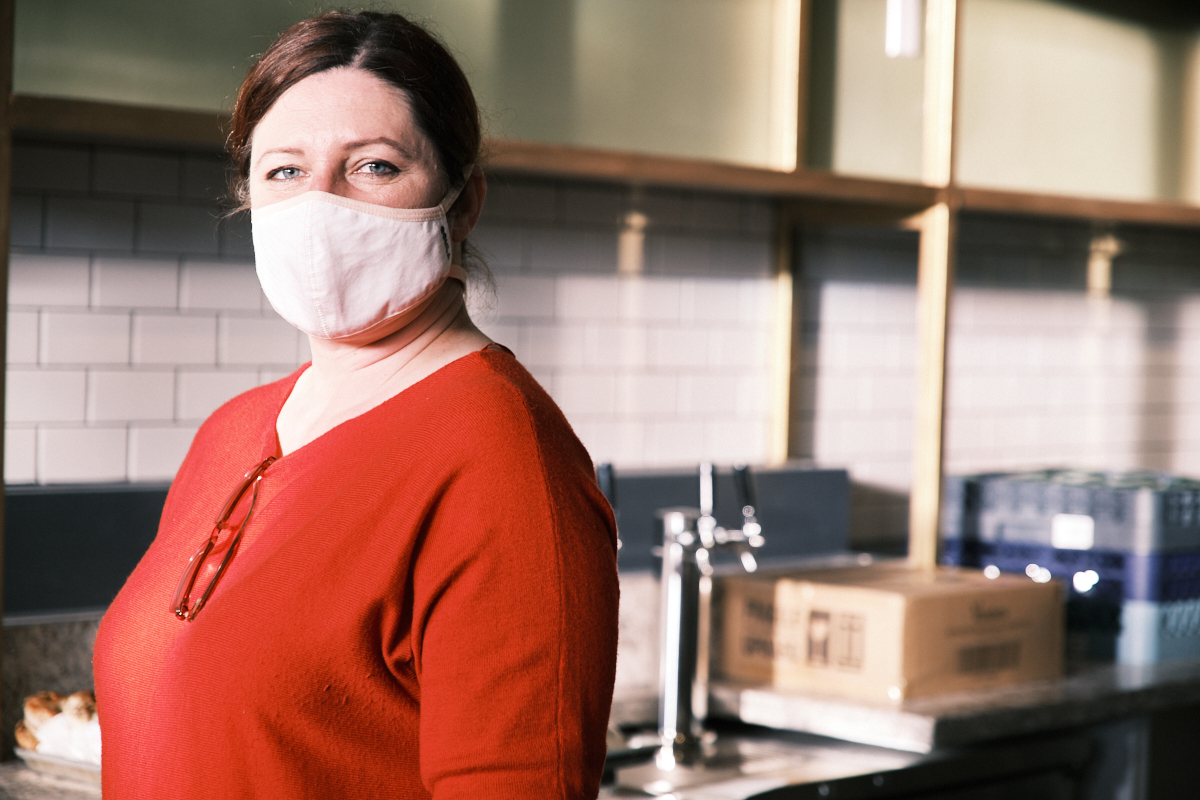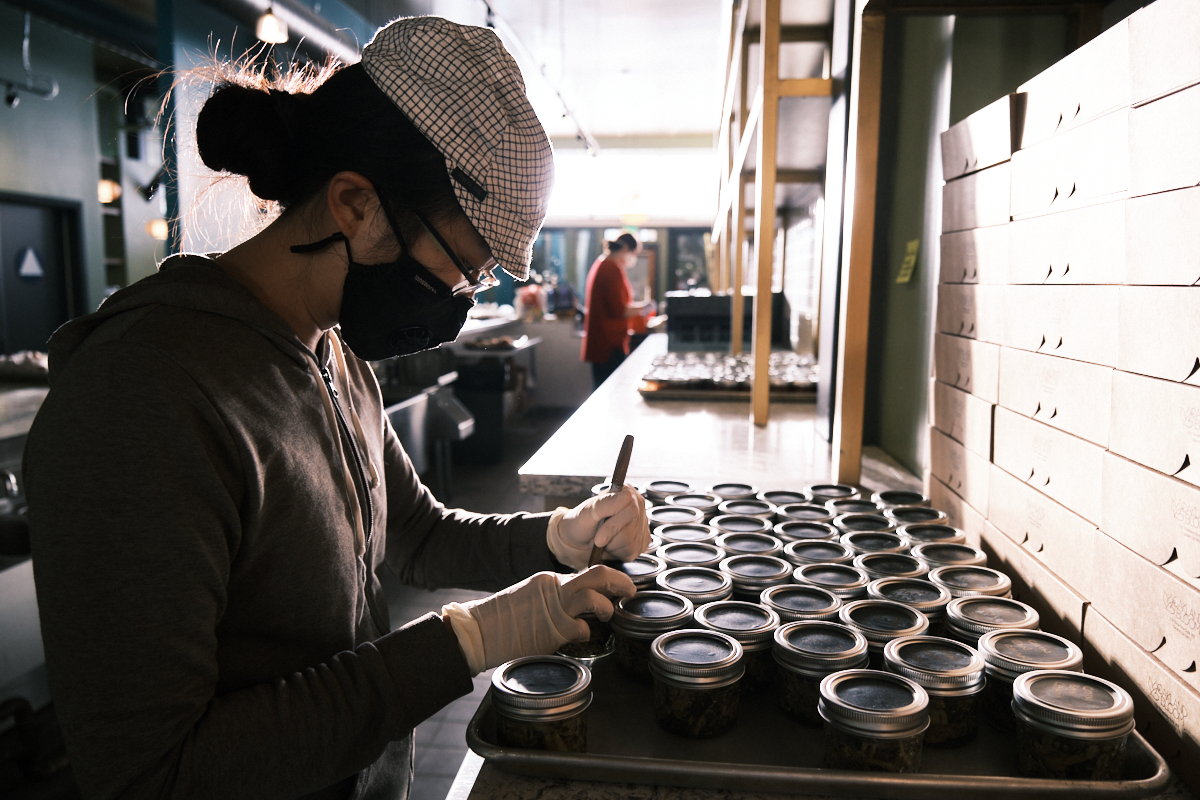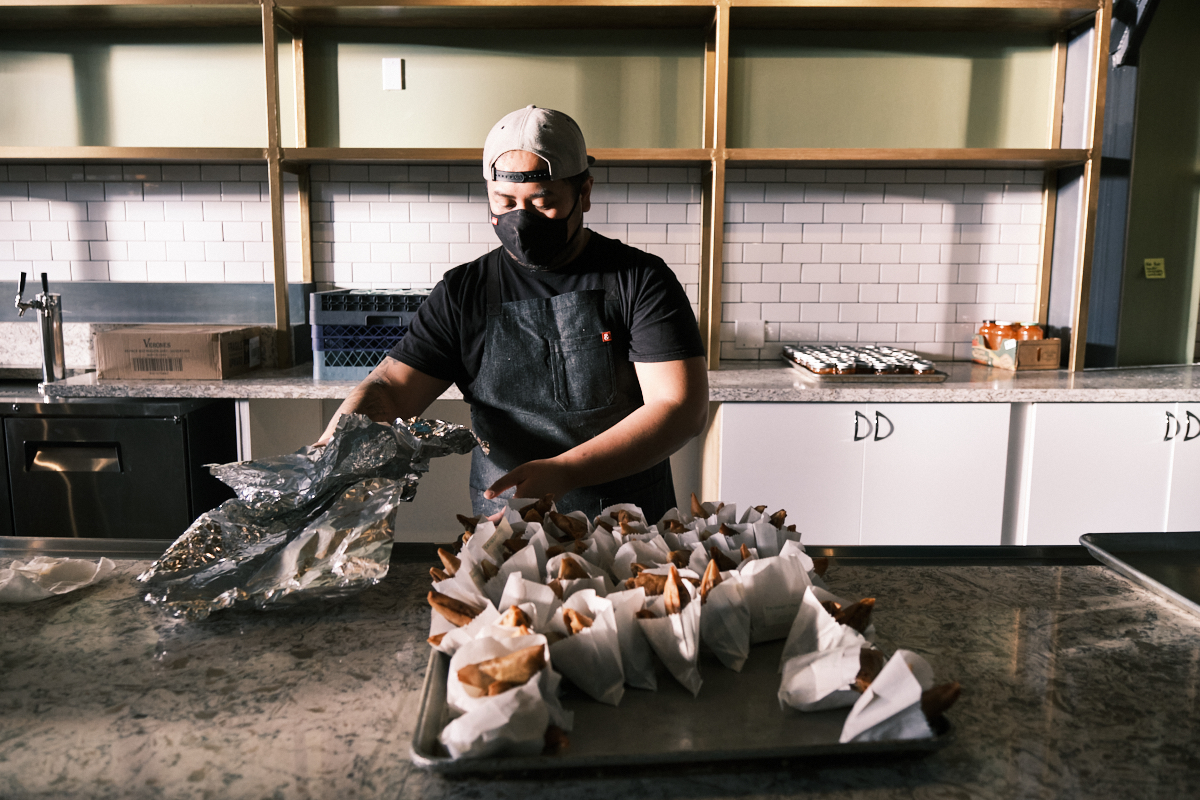
Sanela Mlivo grew up on a farm in Central Bosnia, where her family grew all of their own vegetables, raised sheep, cows and chickens, and made bread, stews and soups. They lost everything in the Bosnian War, and in 1998 the family came to Oakland where Mlivo worked in a series of restaurants — Italian, Bulgarian and Palestinian.
“When I was little, I loved to cook,” she said, “but working for years in the restaurant industry, and seeing how rough it is for the people who work the hardest, inspired me to sell Bosnian food with a business model that treats people better. Working together and sharing profits is better than some people making a lot of money and some not making a livable wage.”
Now, Mlivo dreams of doing just that at her own farm-to-table restaurant that would sell Bosnian street food like ćevapi, a popular dish that pairs spiced sausages with homemade pita bread.

Kit Lam prepared meals for her family of 25 in Hong Kong. She worked as an accountant by day, but had a passion for cooking. When Lam came to the U.S. in 2011 to give her daughters Kinki and Vanessa a better education, she found work as a server at an Oakland restaurant. Despite working hard, Lam said, the owner didn’t appreciate her efforts, so she went to drive for a food delivery service instead. Like Mlivo, she too dreams of opening a restaurant with traditional street food from her home country — only in her case, Hong Kong dishes such as curry fish balls, grilled turnip cakes, sweet potato balls and curry cart noodle soup.
Mlivo and Lam are now pursuing their dream with Oakland Bloom, a nonprofit, volunteer-based collective that provides career support to refugee and immigrant chefs. Instead of simply training people to find work in the food industry, however, Oakland Bloom is building pathways for chefs — its current cohort hails from Burma, Hong Kong, Bosnia and Eritrea — to launch their own businesses.

Diana Wu, a member of Oakland Bloom’s board of directors, said the collective’s approach is based on the understanding that the restaurant industry can be particularly stifling for immigrants and women of color. That’s why Oakland Bloom supports its members who aspire to someday open their own business by running workshops and connecting them with “commercial opportunities to gain experience cooking at scale, such as catering, to build their experience while earning income for the chefs themselves.”
“Pre-pandemic, we connected chefs to catering and other cooking opportunities, such as demos and classes,” said staff member Jenabi Pareja, who describes Oakland Bloom as a place where everyone works together. “We provided training in the kitchen as well as business launching.”
But COVID-19 threw a major wrench into Oakland Bloom’s programs. Many of its chefs lost jobs and income, and those with young children had to stay home because of school closures. From the outset, Oakland Bloom’s staff checked in with individual chefs and helped them navigate the complex web of social services and apply for resources. Mental health, housing, employment, and food programs were also made available to participants through partnerships with other service agencies.

To chef Mlivo, Oakland Bloom was a great resource in a difficult time. “They helped me with little gigs that kept us alive during the pandemic. I got paid for cooking meals. Not enough to pay all the bills, but it gives me hope.”
In May, Oakland Bloom seized on an opportunity to have the chefs cook for the North Oakland Mutual Aid Network, which distributes food and hygiene materials to unhoused people in curbside communities in North and West Oakland, once a month. Oakland Bloom’s chefs prepare 300 meals for the program every month, said Pareja. The mutual aid network supplies the ingredients and packaging, she said, while Oakland Bloom fundraises to compensate the chefs for their work, in an initiative called Pay It Forward.
“It was good practice for them to figure out the cost of goods, scale up their recipes to 75 servings and streamline preparations,” said Pareja. “They also had the opportunity to create different dishes every month and receive feedback. They were stimulated, learning and contributing.”

Some of the dishes Oakland Bloom chefs have prepared for the meal distribution, he said, include mohinga (a Burmese soup), tea leaf salad, mapo tofu, Bosnian herbed rice with grilled chicken, gomen (collard greens), meser wat (lentils), doro wat (chicken), and Thai pumpkin curry.
Pre-pandemic, Oakland Bloom struggled to find a commercial kitchen space. But opportunity came after COVID-19, when in June the majority owner of a 2000-square foot restaurant on Eighth Street allowed the collective to take over the downtown space. Oakland Bloom plans to turn the location into a worker-owned cooperative, giving chefs access to a commercial kitchen and a pathway to ownership. Because of distancing guidelines, the plan is to start with one chef at a time in the kitchen, which is currently undergoing a remodel and close to being ready.
“[The] culinary industry is very elitist,” said Pareja, explaining one reason why Oakland Bloom wants to run its own kitchen. “How do we acknowledge and validate the refugee experience?”

Florencio Esquivel, a staff member and former owner of Hella Vegan Eats, helps the chefs with marketing and building their brand identity.
“I think the way people tell their story, stay connected to their culture and build their community is often through food,” said Esquivel. “Creating a facility that can honor and empower the people telling those stories is one of Oakland Bloom’s goals. The food industry often asks immigrant chefs to assimilate, by lowering the price point of their food and creating dishes that are more appealing to a western palate, but not authentic. We are trying to empower people to be their authentic selves and be unapologetic about it.”
“As terrible as COVID-19 has been, I’m hopeful for the future,” said Oakland Bloom’s founder, Seanathan Chow. “We, as a society, have an opportunity to collectively reshape an industry that has historically thrived off the backs of working-class folks. Oakland Bloom is working to change this, but we can’t do it alone.”
Chow said Oakland Bloom welcomes community support whether it be in the form of skills such as web design, marketing and product development, or through monetary donations. Oaklanders can also support by pre-ordering pop-up meals prepared by Oakland Bloom chefs, on Sundays beginning in January.
“I encourage and welcome folks to reimagine with us and support us in creating a new food industry standard that all other restaurateurs should follow,” he said. “Where people are actually paid livable wages, their voices counted and chefs are given credit for their cultural foods, born from generations of culinary traditions passed down from families.”






